The dark side of #MeToo
Men’s lives are being ruined but women are also finding they pay a heavy price.
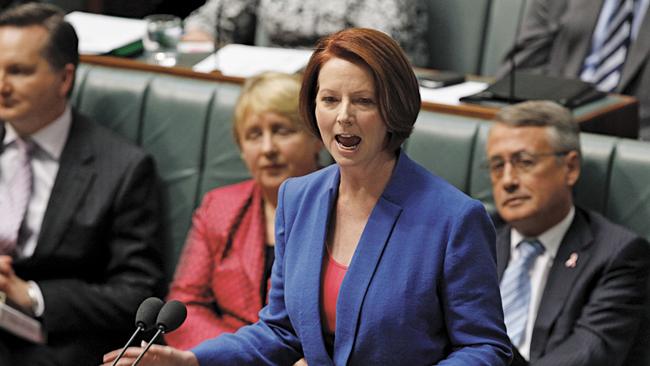
This past week, some women have been reminiscing about Julia Gillard’s misogyny speech 10 years ago. Where they were when they heard it, what’s changed in the decade since, etc. Some have contributed to a book of essays called Not Now, Not Ever, released last week and edited by Gillard. They ask what have we learned? Not enough, most conclude.
I agree. That book, with all the usual people saying all the things you’d expect them to say, points to how the #MeToo movement has fortified the tiresome parts of feminism. It is still a cliquey movement, rarely brave or curious enough to include women outside their comfort zone in their conversations.
Their feminism is for women who don’t ask different, and obvious, questions about the women’s movement, and later about #MeToo. They stick to the simple, predictable path.
Samantha Maiden recently wrote about how Gillard’s speech brought back moments in her life when men behaved badly. She cited some examples. She said she was called a bitch at work by a bloke, and nothing happened to him. When she returned to work after having a baby, a different man said: “I hope you’re breastfeeding.”
In my 20s, after having a baby, my thesis supervisor at university said: “The world would be a better place if more mothers breastfed longer.” I ignored her. Yes, her. It’s not just men who stick their unwelcome noses into a woman’s private life.
I was called a bitch too, once, by a male teacher. He threw me out of class, and told me to go to the headmaster’s office. I went to the girls’ toilet instead until class was over. The truth is I was an awful 15-year-old student – a naughty smart-arse who barely turned up, high grades and low respect for teachers that year. He lost his cool, and apologised, I realised that my behaviour was dreadful and he was a great English teacher. We moved on.
There is often so much grey in the way we interact with each other, and Gillard’s speech made no attempt to do anything except bludgeon political opponents with repetitious barbs about sexism and misogyny. It was political more than it was cultural, and that much remains the same about this cliquey genre of feminism. Women like me would never be asked to write a chapter in Not Now, Not Ever in case we throw light on the grey, messy, imperfect, complicated nuances that make us human. For Gillard and her entourage, the equation remains black and white. “Women everywhere are weighed down by misogyny,” she writes in Not Now, Not Ever.
Other things have remained the same since Gillard’s speech. Motherhood is still not admired as a worthwhile, wonderful, personal choice. If it were, it would feature somewhere in discussions about women’s lives, adding telling details to otherwise crude measurements of gender equality and pay gaps. It never does. Granular details are not welcomed by ideologically blinded activists.
I have discovered over the past few years that when you show even a little curiosity about the wave of #MeToo stories, the allegations, the Twitter storms, and media witch-hunts, especially when you delve a little deeper into the careers and lives wrecked, you soon hear from a host of people, not just men, who have suffered, deeply and personally, in the bleak, brutally unquestioning landscape of the #MeToo movement.
People who have, for different reasons, discovered the machinery that has evolved to deal with #MeToo in workplaces, by professional tribunals, and in the media is often too blunt for people to navigate fairly or safely.
I was wrong to assume that curiosity is a baseline professional trait in journalism. Instead, it is an optional extra for many of our high-profile journalists, especially at the national broadcaster. The ABC’s Louise Milligan recently complained in a podcast chat that journalists often don’t consider other perspectives. Was this a spoof? She ignored large swathes of relevant information when pursuing rape allegations against Christian Porter. That serious failure, the subject of a lengthy complaint, has been fobbed off by the ABC. Curiosity was famously missing from her lamentably wrong allegations about Andrew Laming “upskirting”. Need one mention George Pell?
Curiosity is critical when writing in the #MeToo era. I have never watched Oprah. I don’t read gossip columns. Trawling over the finer details of someone’s sad and failed relationship is not my cup of tea. Yet I’m doing it more and more because only by delving into these private details can we measure how well the #MeToo movement is serving us. Three cheers for the punishment meted out to men, and very publicly in some instances, who deserved to be held to account for their behaviour. The light shone on them might stop other women being harassed, abused, raped.
There is another side though. Mostly hidden from us, happening frequently in workplaces across the country. Grown men who have had consensual relationships with grown women share with me details of their liaison, dates, dinners, emails, playful, loving texts that two people share when the relationship works. Yes, that includes nude photos, sex stuff that two consenting adults share. Thanks, iPhone.
The men also share with me the utter trainwreck of their lives when the relationship ends, and their former lover decides to make a complaint at their workplace. I am empathetic, not necessarily sympathetic. Some of these men made dumb decisions. Having a relationship with a junior worker is especially fraught after #MeToo. How lucky I am to have been that junior worker 30 years, a marriage and three children ago, when consenting adults were trusted to navigate their private lives. Work is where many people meet, date, break up, marry.
Do I really need to point out that human beings are complex, that the men I hear from are far from perfect. Our emotions, desire, needs don’t always lead us to make cold, calculated and safe decisions about who we get close to. Or that women pursue men just as often as the reverse. Power imbalances are not as black and white as a formal office hierarchy. Women have plenty of power, even junior ones.
After #MeToo, there is a troubling pattern: women lodging a workplace complaint after a private, consensual relationship ends. And when that happens, the grey and messy nuances that make us human are discarded. In the frequent battle between “she says she was harassed/coerced” versus “he says it didn’t happen/she consented” women often have the upper hand in the #MeToo machinery of the professional workplace, and in a media cycle some women use.
Amber Heard was able to put her side, and Johnny Depp too, in a court, indeed several courts, where rules have been tailored over centuries to provide a fair trial. The overwhelming impression, once both sides had their say in courtrooms, was of an unholy mess – with both sides behaving badly on occasion.
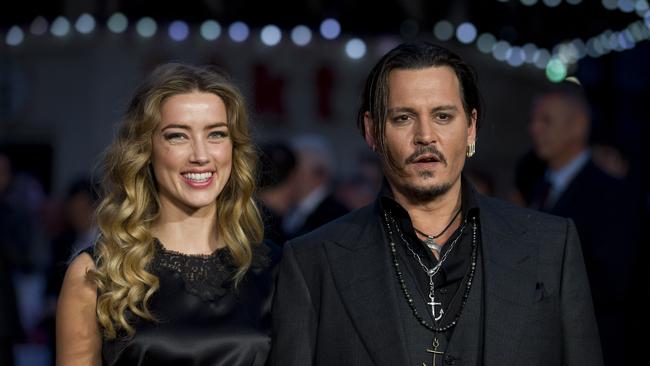
But most people don’t get to tell their side against a background of the presumption of innocence, reasonable doubt and evidentiary rules aimed at producing high-calibre evidence. Without this legal scaffolding, there is an assumption that once an allegation is made, there must be consequences. I hear about them: a specialist doctor suspended, even though the woman who complained to the medical board about him later admitted in court that she lied; another man, an academic, his life is in tatters, his former partner can’t seem to let go of their mucked-up relationship; a union leader who lost his job because he had two consensual relationships with two adult women at different times who appeared to relish their relationship with him – until they didn’t and he was sacked.
Lives are being wrecked because it is so damn easy to free-ride on the #MeToo movement to seek revenge over a failed relationship, or to pursue some other agenda.
Lawyers contact me too, telling me that once a public witch-hunt gets going, the mob mentality undermines not just the law, but the best intentions of the #MeToo movement to address sexual harassment, assault and rape.
Rebekah Giles, who has acted for many people drawn into this morass, echoes much of what I hear from lawyers. “The sentiment of #MeToo is legitimate and understandable,” she told me, “but the mob mentality doesn’t possess the necessary sophistication.”
“It doesn’t filter the good from the bad and the unfair. It metastasises and cancels everything and everyone in its wake – even those who dare to provide legal representation to accused persons.
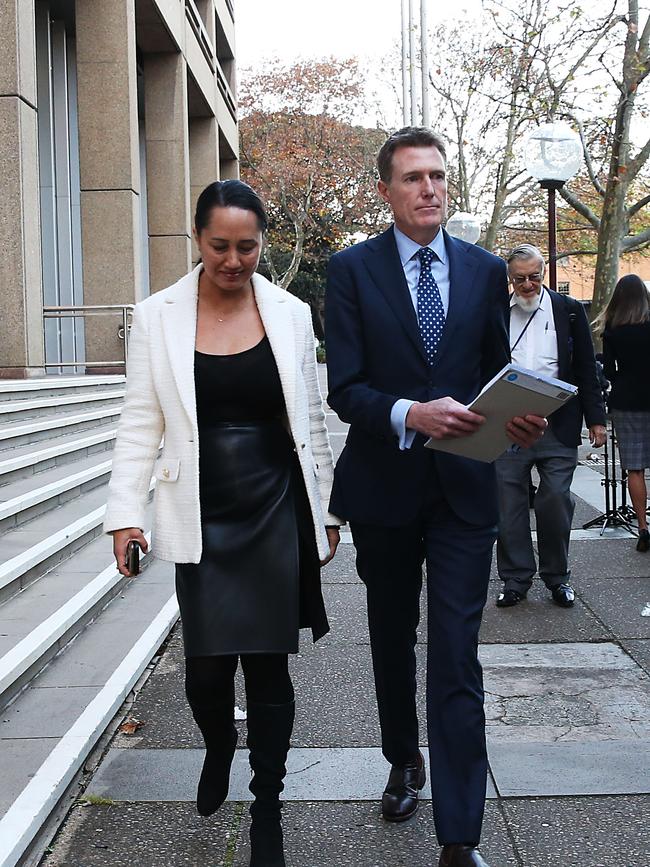
“It’s frustrating as a lawyer because … legal redress is often very limited. It is also incredible difficult to counter the intensity and voracity of cancel culture. Understandably, people are afraid to say or do anything that makes them vulnerable to being drawn in and attacked. This fear has an undeniable impact on the conduct and outcome of legal proceedings.”
Young women contact me too, telling me about the sexual comments they endure from men in their workplace. These women want to be heard, they want to tell someone this behaviour is not OK. But not every woman wants to wreck a man’s life with a formal complaint. Not every woman wants to be a headline in a newspaper or appear on Four Corners either.
But there is no longer any sensible, fair forum for adults to react in normal ways – telling a man this is not OK, telling his superior to pull the bloke into line. And then can we all just move on.
Such is the madness around this issue, once a complaint has been made, a complainant can lose control of his or her story. #MeToo has shown this is particularly problematic for women who make a complaint. People around her, in politics, in the media, may use her story for their own reasons. She ends up being abused in different ways. And when the heavy machinery of workplace sexual harassment kicks in, notes must be taken, investigations undertaken, reports must be made up, boards must be told and penalties imposed.
We have moved from no proper machinery to deal with sexual harassment and abuse in the workplace to the full career-wrecking catastrophe. For those brave enough to ask questions, to challenge the feminist orthodoxy, the dark side of #MeToo reveals that the losers are men and women. When did we get so clumsy, so unsophisticated, so lacking in curiosity and fairness?


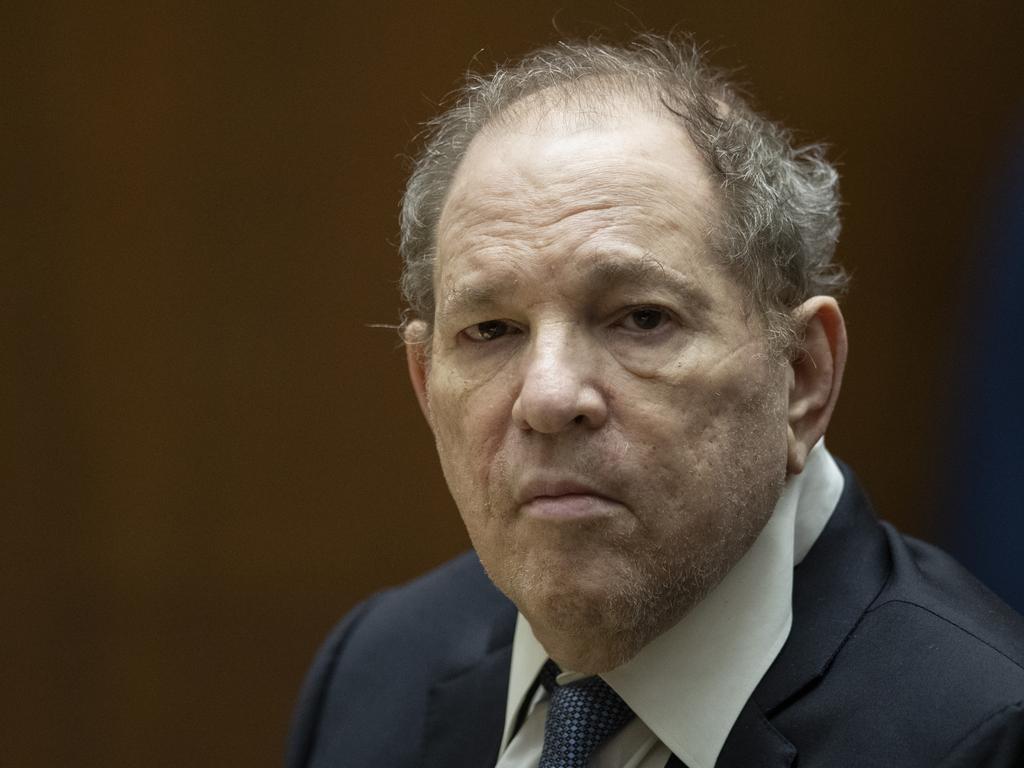
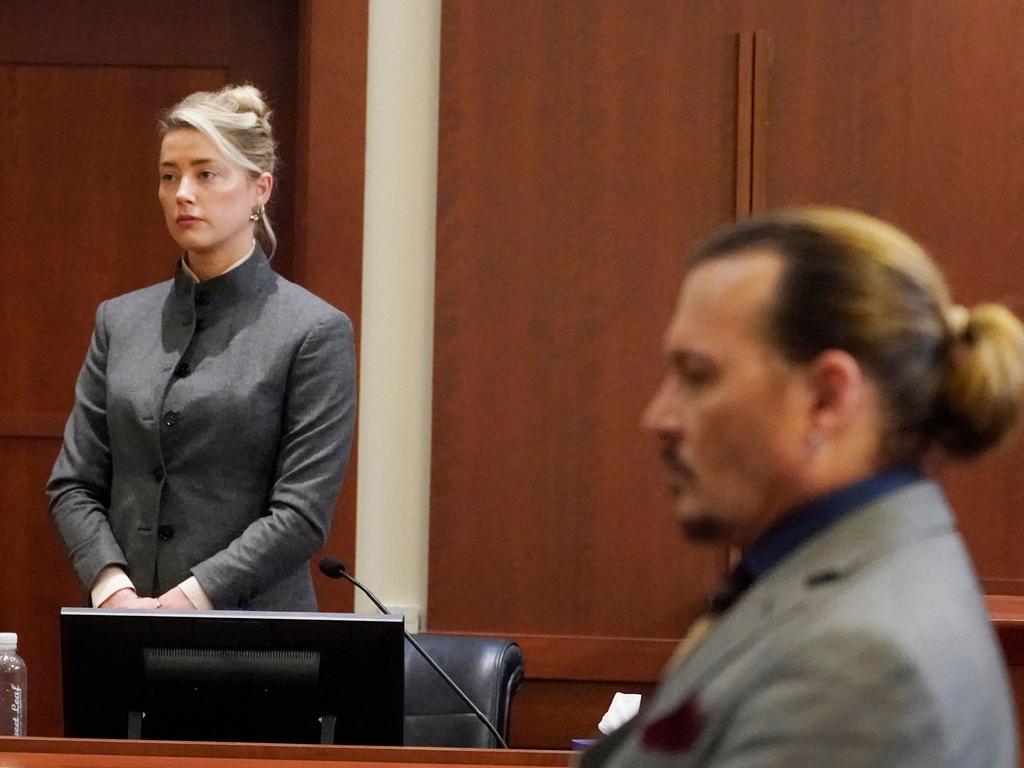




I can’t bear columns that overuse the “I” word. So often they signal stream of consciousness writing: poorly argued coupled with poor style that focuses on self rather than an idea. So please excuse me. On this occasion, a little of the personal can’t be avoided to explain the #MeToo landscape that has engulfed us.